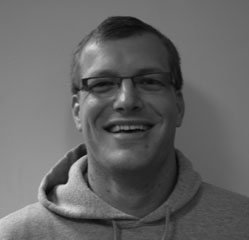
Brandon Minster
In April of 1917, President Woodrow Wilson asked Congress to declare war on Germany so the world could “be made safe for democracy.”
As this year’s events in northern Africa and the Middle East should remind us, it’s unclear if democracy is safe for the world.
The debate over democracy has been going on for as long as democracy has been in existence.
The ancient Greek concept of the term would appear foreign today. The franchise was even more restricted than in 18th-century America.
Greek democracy was periodically suspended.
The Roman Republic had provisions for dictators.
A central theme of The Federalist Papers is just how much democracy would be healthy for the nation.
Even democracy’s most loyal supporters would agree there are times when the best answer to a problem is not “Let’s vote on it.”
To most Americans, these are technicalities. The popular wisdom is that democracy works better than the alternatives.
The entire reality TV genre is mob rule via texted votes. Three times America has imposed a government on a vanquished foe (Germany, Japan and Iraq) and all three times, it involved a more direct democracy than we have at home.
This doesn’t mean that the problems of democracy have been solved. They’ve just been ignored. James Madison’s point that “had every Athenian citizen been a Socrates, every Athenian assembly would still have been a mob” is still true today, and nowhere is that more evident than in the tumultuous Arab world.
For all the lip service America pays to democracy, it is scared to death of an Arab democracy.
The average man on the street in Arabic-speaking countries is hostile to America and Israel, as summarized in the most recent Arab Public Opinion Poll conducted by the Brookings Institute.
Elections have a bad tendency to follow public opinion and the electoral history of the region reflects that. One example is Hamas, classified by the American government as a terrorist organization, winning Palestinian elections.
Algeria’s military canceled elections that were going to be won by a religious party and Turkey’s government continues to impose secularism on a populace longing for more theocracy.
Theocracy in itself is not a problem.
After all, most Americans are not threatened by the Vatican.
But combining religious fervor with decidedly anti-American opinion is not safe for America or its allies.
Our economic well-being, for better or worse, depends on the low-cost energy available from oil. Israeli lives depend on Israel’s coexistence with friendly neighboring governments.
President Barack Obama was criticized for his slow response to the Egyptian revolt, but Hosni Mubarak had shown himself to be unthreatening to America and Israel, while America is unfamiliar with the intentions of the Muslim Brotherhood.
The biggest question America faces in Arab democracy is terrorism.
Of course it would be foolish to claim a majority of the Arab world are terrorists. However, it would be just as disingenuous to claim terrorism does not obtain its strongest support there.
All of the participants in the Sept. 11 events came from that region. It still houses countless clerics who call for the spread of murder and destruction.
Closer to home, American students are becoming involved in terror plots at disconcerting rates.
George Mason University student Umar Farooq was arrested in Pakistan in December of 2009 on terrorism charges.
A Saudi college student in Texas was recently arrested for attempting to buy materials for a weapon of mass destruction.
Until Arabs protest the expropriation of their religion and culture by murderous thugs as loudly and regularly as they protest the negative opinion some Americans have of them, the western world will continue to be wary of Arab democracy.






Comments